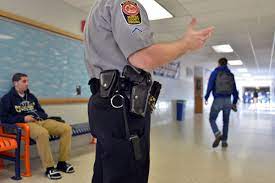
The Role of School Resource Officers: Legal Implications for High School Students
School resource officers (SROs) are law enforcement officers who are assigned to work in schools. Their role is to maintain safety and order, but the presence of SROs in high schools has raised legal and policy concerns. As an education lawyer, it is important to understand the legal implications of SROs for high school students.
SROs and Student Rights
SROs have the authority to enforce criminal laws and school policies in the school environment. This includes conducting searches and seizures, questioning students, and making arrests.
However, students still retain their constitutional rights in the school environment, including the rights to free speech, privacy, and due process. SROs must balance their responsibility to maintain safety and order with students’ constitutional rights.
Legal Concerns with SROs in High Schools
There are several legal concerns with the use of SROs in high schools. One concern is that SROs may engage in racial profiling or use excessive force against students, which violates their civil rights.
Another concern is that SROs may criminalize student behavior that would be better handled through disciplinary measures. For example, a student who is disruptive in class may be arrested for disorderly conduct, rather than being referred to the school’s disciplinary process.
Education Lawyer’s Role in Addressing SRO Issues
As an education lawyer, it is important to understand the legal implications of SROs in high schools and to work with schools to develop policies and procedures that address these concerns.
This may involve advocating for the use of alternative methods of discipline, such as restorative justice or counseling, rather than criminalizing student behavior. It may also involve advocating for SRO training in cultural sensitivity and de-escalation techniques to prevent racial profiling or excessive force.
Education lawyers may also work with school administrators and law enforcement agencies to develop clear protocols for the use of SROs in schools. This may involve developing guidelines for when SROs should be involved in disciplinary matters and when alternative methods should be used.
Conclusion
The use of SROs in high schools raises important legal and policy concerns. As an education lawyer, it is important to understand the legal implications of SROs for high school students and to work with schools to develop policies and procedures that balance the need for maintaining safety and order with students’ constitutional rights.








